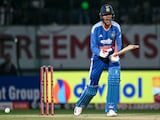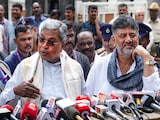Former Google engineer and eminent futurist Ray Kurzweil has predicted that humans will achieve immortality with the help of nanorobots in just seven years.
The 75-year-old computer scientist, who received the National Medal of Technology in 1999 and was inducted into the National Inventors Hall of Fame in 2022, made this shocking prediction in recent decades. His comments resurfaced online in a two-part YouTube series by tech vlogger Adagio.
The videos, which have collectively accumulated thousands of views, revisits claims that Mr Kurzweil made in his 2005 book, 'The Singularity Is Near'. He predicted that technology will allow humans to achieve everlasting life by 2030. He also stated that current advancements and expansion seen in genetics, robotics and nanotechnology will allow nanorobots to run through our veins in the near future.
According to the New York Post, the former Google engineer previously had also said that "2029 is the consistent date I have predicted for when an AI will pass a valid [Alan] Turing test and therefore achieve human levels of intelligence".
"I have set the date 2045 for the 'Singularity' which is when we will multiply our effective intelligence a billionfold by merging with the [artificial] intelligence we have created," he added.
Also Read | Google's AI Chatbot Bard Fails To Answer Basic US College Exam Questions: Report
According to Mr Kurzweil, in less than a decade humans will also have created technology to fend off ageing and illness with microscopic robots, sent to repair our bodies on a cellular level. He also claimed that such nanotechnology will even allow people to eat whatever they want while staying thin and energized.
Now, as per the Post, while Mr Kurzweil's predictions seem a little far-fetched for some, many of his previous claims have come true. He had predicted that consumers will be able to design their own clothes with precise measurement and style requirements from their home computers by 1999. He had also said that the world's best chess player would lose to a computer by 2000, and that people would primarily use portable computers, in a wide range of sizes and shapes, by 2009.















